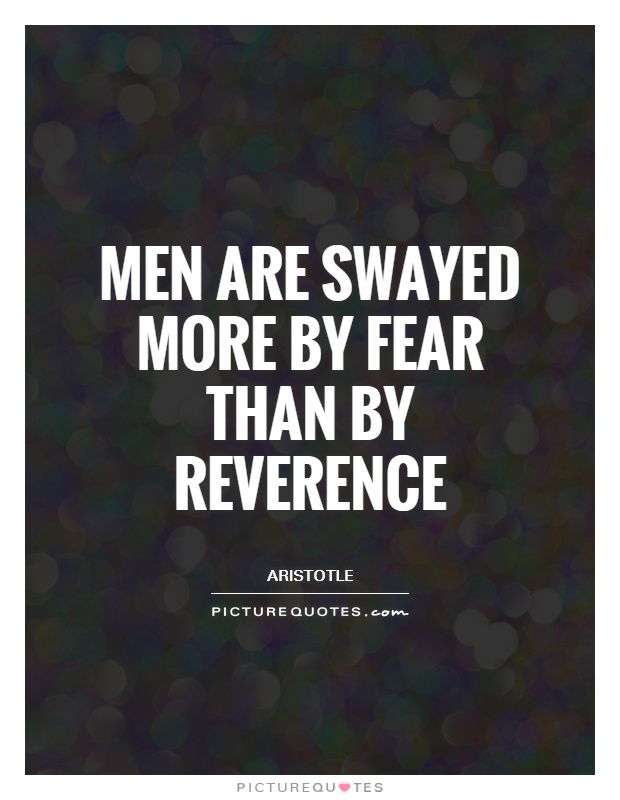Men are swayed more by fear than by reverence

Men are swayed more by fear than by reverence
In Aristotle's philosophy, the idea that men are swayed more by fear than by reverence holds significant weight. Aristotle believed that fear was a powerful motivator that could drive individuals to act in ways that they may not have otherwise. Fear, according to Aristotle, is a primal emotion that can override reason and logic, leading individuals to make decisions based on self-preservation rather than moral principles.Aristotle argued that fear was a natural response to threats or dangers, and that it could be used as a tool to control and manipulate others. He believed that fear could be used to maintain order and stability within a society, as individuals would be more likely to follow rules and laws out of fear of the consequences of disobedience. In this sense, fear could be seen as a form of social control that could be used by those in power to maintain their authority.
On the other hand, Aristotle also recognized the power of reverence as a motivator for human behavior. Reverence, or respect for authority and tradition, could inspire individuals to act in ways that were in line with societal norms and values. Reverence could be seen as a more positive and constructive force than fear, as it could lead individuals to act out of a sense of duty and honor rather than out of self-interest.
However, Aristotle believed that fear was ultimately a more powerful motivator than reverence. He argued that fear was a more primal and instinctual emotion that could override rational thought and moral principles. In times of crisis or danger, individuals were more likely to act out of fear for their own safety rather than out of reverence for authority or tradition.
Overall, Aristotle's belief that men are swayed more by fear than by reverence speaks to the complex and often conflicting motivations that drive human behavior. While reverence may inspire individuals to act in ways that are in line with societal norms and values, fear remains a powerful force that can override reason and logic in times of crisis. Ultimately, Aristotle's philosophy reminds us of the importance of understanding and navigating the complex interplay of fear and reverence in shaping human behavior.












 Friendship Quotes
Friendship Quotes Love Quotes
Love Quotes Life Quotes
Life Quotes Funny Quotes
Funny Quotes Motivational Quotes
Motivational Quotes Inspirational Quotes
Inspirational Quotes